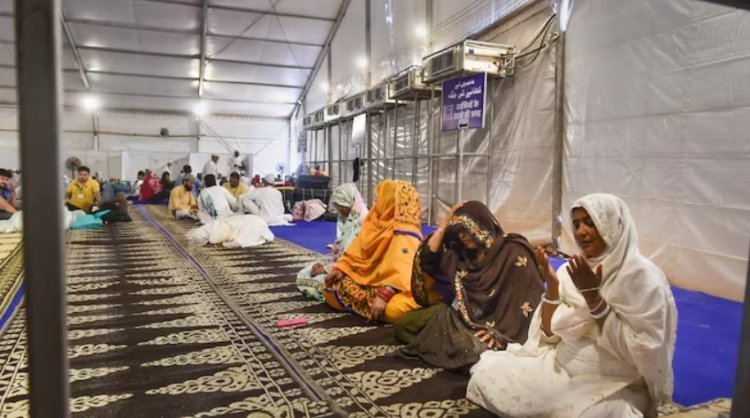Over 4,300 women will receive approval for the Haj from the minority ministry: Sources
Sources from the ministry say that 4,314 women are getting priority clearance to travel on the Haj without a male companion. India brings in the third most pilgrims to Saudi Arabia each year.

Over 4,300 women without a mahram or a male guardian who is related to them by blood have applied for the Haj pilgrimage. This is the first time that a lot of women have applied to go on Haj without a man.
4,314 women are receiving priority clearance for Haj travel, according to minority affairs ministry sources. By Friday, their applications are expected to be approved by the ministry, allowing them to travel to Saudi Arabia.
Women over 45 who wish to travel for the Haj pilgrimage without a male guardian have submitted a large number of applications to the ministry. This represents a significant departure from the previous practice, in which women were only permitted to travel for the Haj with their husbands or another relative who were not legally married to the woman.
This rule had been dropped by the BJP-led government, and the Covid pandemic coincides with the increase in applications this year. The applicants are eagerly awaiting their ministry's approval as the first batch of flights is scheduled to depart for Saudi Arabia on May 21.
In the meantime, a new initiative to provide Haj pilgrims traveling to Saudi Arabia with seamless and free healthcare facilities has been launched by the health ministry and the minority affairs ministry.
The goal is to make sure that the three major cities of Makkah, Madinah, and Jeddah take care of pilgrims' health issues.
The initiative includes an initial health screening for Haj pilgrims, which can only be performed by registered government hospitals and doctors through state governments. Through government facilities, all medical tests, including blood tests, Covid tests, checks for pre-existing co-morbidities, heart conditions, and liver and kidney dialysis, among others, will be free.
In a departure from previous years, the Ministry of Health will provide screening and medical certificates, vaccine procurement and distribution, equipment and medicine procurement and distribution, and deputation of health care workers to the Ministry of Minority Affairs. In addition, pilgrims' patients will be monitored by means of an application.
The screening and issuing of medical certificates to Haj pilgrims will be the responsibility of authorized government medical officers. In contrast to the previous guidelines of MoMA/international travel standards, which only permitted women who were less than 35 weeks pregnant, pregnant females up to 28 weeks will be permitted for Haj 2023.
The new initiative will concentrate on the quality of pilgrims' healthcare facilities. A technical team of healthcare professionals will also be sent out, and help desks will be set up in various places at airports or Mecca in Saudi Arabia. The Saudi Arabian Jan Aushadhi stores and labs will also be used by the government to distribute medicines.
India receives a quota of 1,75,025 pilgrims in 2023, making it the country with the third-largest annual pilgrimage to Saudi Arabia.













